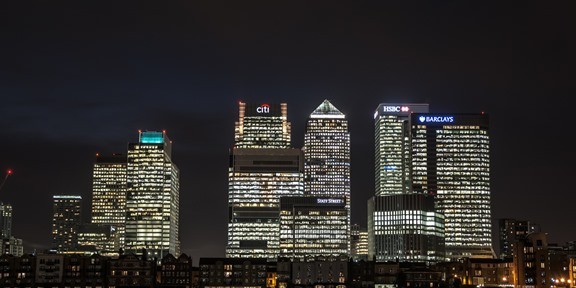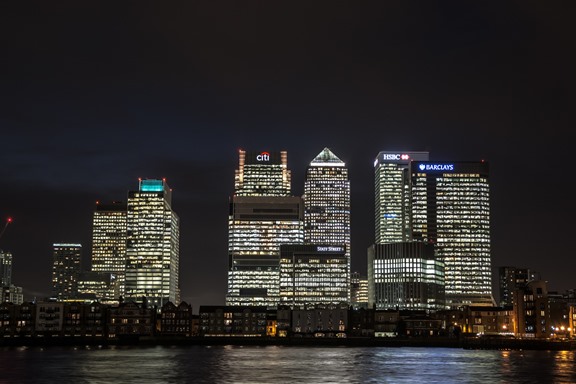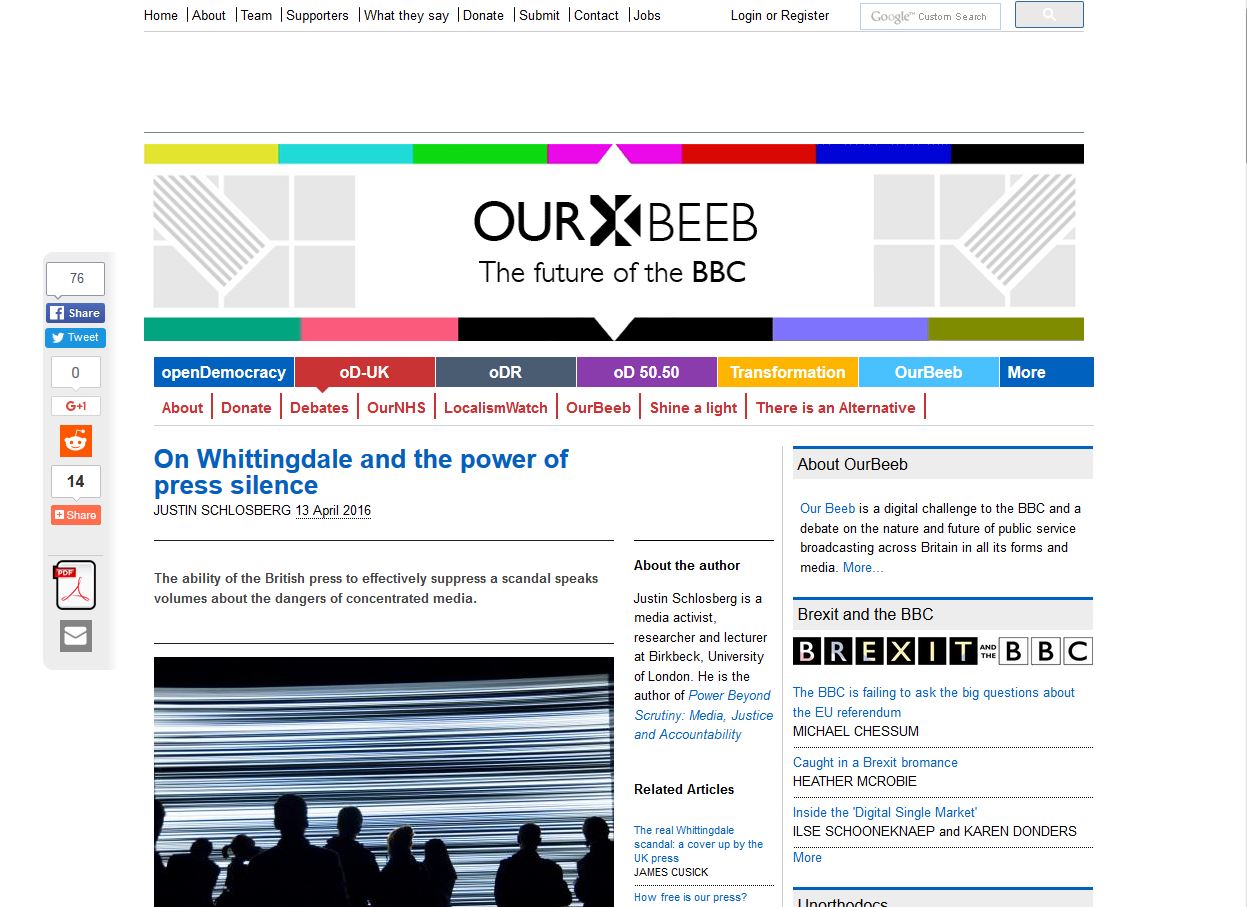This article was written by Dr Justin Schlosberg from Birkbeck’s Department of Film, Media and Cultural Studies and Professor Des Freedman from Goldsmiths, University of London. It was originally published on The Conversation
In 1996, when the web was in its infancy, the American technology writer Nicholas Negroponte predicted that the coming digital revolution would facilitate a “cottage industry of information and entertainment providers”. Twenty years on and the story of “fake news”, which had wide currency during the US election, and was found emanating from basements, cafes and computer labs in the small Macedonian city of Veles would appear to prove Negroponte correct.
Except that we are living in an era when vast sections of our media, both “old” and “new”, are controlled by a tiny number of giant corporations, most of which dominate their particular sectors and face minimal competition.
Take the local news sector which only recently argued that an arbitration system as proposed by Section 40 of the Crime and Courts Act would undermine plucky community-based titles and weaken local democracy. The problem is that five conglomerates account for 80% of all local newspaper titles while the remaining 58 publishers account for just 20% of titles.
Or take the UK’s supposedly competitive national newspaper market where five companies – largely presided over by tax exiles and media moguls – control 90% of daily circulation. If you take online readership into account, which bumps the Guardian up the rankings, then six companies fall into this category.
The situation is even more dire when it comes to the increasingly profitable digital world. Yes, it’s possible to argue that there is a cottage industry of, for example, app and video game developers. But distribution – the means by which content actually becomes available to consumers – is subject to serious bottlenecks because of the grip exerted by dominant companies.
So while there may be thousands of digital start-ups, they have to face the fact that Apple and Spotify alone account for 63% of the global streaming market and that Facebook is fast becoming the most popular digital platform for news. Meanwhile Google has some 90% of global desktop search and Google and Facebook together account for around two-thirds of all digital advertising in the US. According to the Financial Times, 85 cents of every dollar spent on digital advertising in America went to those two companies in the first quarter of last year – evidence of “a concentration of market power in two companies that not only own the playing field but are able to set the rules of the game as well”.
Setting the agenda
One of the great misconceptions, however, is that the bewildering market power wielded by the likes of Google and Facebook has come at the expense of the mainstream press and broadcasters. Established, reputable, professional news organisations and the “real news” that they produce, are apparently losing the ever evolving struggle for eyeballs.
It is a misconception because it conflates decline in the traditional market for news with a weakening of gate-keeping and the influence of editorial agendas. Although commercialism and agenda have always been closely intertwined, they have never been the same thing. Ironically, the power vacuum left by evaporating profits and retreating corporate investors in news publishers has put many newsrooms back in the hands of extremely wealthy individuals, from local oligarchs in Eastern Europe like Lajos Simicska in Hungary to dot.com billionaires such as Jeff Bezos.

Mainstream press dominated by six big companies who control 85% of uk circulation. Lenscap Photography
The missing piece of the puzzle is the complex ways in which Google, Facebook and Twitter are, if anything, reinforcing the agenda-setting power of the mainstream news brands. Google’s news algorithm, for instance, gives priority weighting to news providers with scale, volume and those who cover topics that are widely covered elsewhere.
The problem with fakery is not so much the cottage news industry, but dominant algorithms and ideologically polarised audiences that are supposedly enabling it to flourish. It is, after all, nothing new: the tabloid press will certainly not be remembered for being champions of truth-telling. The problem is more to do with the failure of those very news brands that Google considers “reliable sources” to offer a meaningful corrective to fakery – and, worse, their tendency to amplify it.

As for the post-truth politics of Trump, it wasn’t his provocative and offensive “tweets” that enabled him to burst on to the mainstream political scene, but the way in which mainstream news networks were, from the outset, hanging on his every word. The more offensive, provocative, outlandish the comment – the bigger the lie – the more newsworthy it became. Twitter gave him a platform, but mainstream news provided the microphone, and it is amplification – the ability to be heard – that is the major currency of agenda power.
Media elite
We are, therefore, witnessing not the demise of concentrated “voice”, but its resurgence in more subtle ways.

What can be done about this? We can hardly rely on our elected governments when they seem more comfortable to bow down to digital giants and media barons than to challenge them. For example, the latest research carried out by the Media Reform Coalition and the campaign group 38 Degrees shows that there has been an increase in the number of private meetings between representatives of Rupert Murdoch’s media empire and government ministers ahead of Murdoch’s bid to take full control of Sky, the UK’s largest broadcaster.
In September 2016 alone, News Corp’s chief executive, Robert Thompson, had back-to-back meetings with the prime minister, Theresa May, the chancellor of the exchequer, Philip Hammond, and the culture secretary, Karen Bradley. May even found time to meet with Murdoch that month during a one night trip to New York.
The major problem facing our democracy isn’t the subterranean digital activities of Macedonian teenagers corrupting a supposedly pure news environment. Instead, it’s the fact that we have a media culture that is dominated by billionaire proprietors and elite insiders and a political culture that is too fearful of this media power ever to challenge it. “Fake news” may be grabbing the headlines but we shouldn’t forget about the concentrated market power that has allowed it to thrive.![]()


 Real press power resides in the the ability to suppress a scandal, at least as much as the ability to produce one. This is the lesson we learn repeatedly when journalists, facing the combined pressures of austerity, failing business models and an increasingly cautious and interventionist management decide enough is enough.
Real press power resides in the the ability to suppress a scandal, at least as much as the ability to produce one. This is the lesson we learn repeatedly when journalists, facing the combined pressures of austerity, failing business models and an increasingly cautious and interventionist management decide enough is enough.